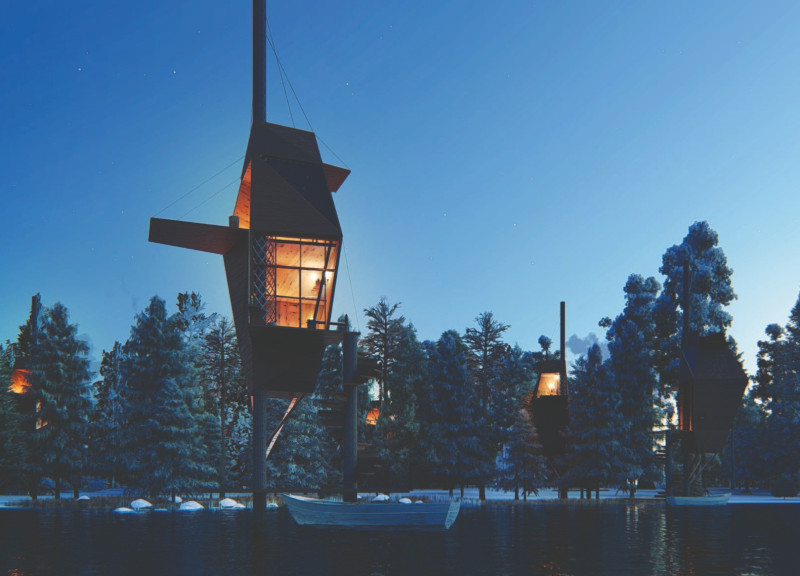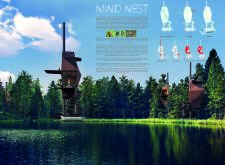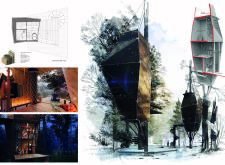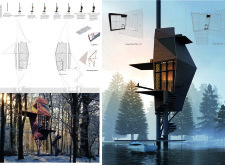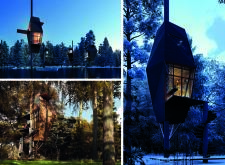5 key facts about this project
Mind Nest is a unique design situated in Latvia, located within an area known for its stunning forests and lakes. The building's concept takes inspiration from natural forms, particularly the nests created by various birds. This approach not only defines its appearance but also enhances its relationship with the surrounding nature. The structure serves as a dwelling while fostering a strong connection to the environment.
Conceptual Framework
The idea behind Mind Nest originates from analyzing the characteristics of bird nests. The design integrates a rigid wooden framework, reflecting the strength seen in wasp nests and incorporating the layered, woven forms of weaverbird nests. This combination results in a building that offers both stability and a sense of belonging in nature.
Spatial Dynamics
The layout emphasizes verticality, utilizing columns as key structural elements. These can be set against the ground or utilize existing trees for support, reducing material use and promoting environmental engagement. The design invites vertical growth, allowing various spatial configurations that move away from traditional layouts. Foldable walls create a strong connection between indoor spaces and the outdoors, providing occupants with changing views and lighting throughout the day.
Sustainability and Materiality
Sustainability is integral to Mind Nest. The structure is designed to operate independently for energy and water. It collects rainwater and harnesses solar energy, with resources stored in both a cistern and batteries. The materials chosen for the building include a lightweight wooden framework alongside thick hempcrete walls. This combination ensures energy efficiency and a minimal environmental impact. The exterior is finished with triangular wooden panels that resist harsh weather and blend naturally with the landscape.
Functional Layout
Inside Mind Nest, the layout is practical and efficient. Partitions create distinct areas for essential functions like food storage and dry toilets. Movement through the space is aided by a wooden spiral stair and a rope ladder, which save room while maintaining a clean look. The design enhances the experience of living in the forest, encouraging a sense of openness and connection to nature.
Mind Nest also features a fireplace, which supports the heating system along with a thermal solar panel on the roof for hot water. These elements reflect a commitment to sustainability and comfort, allowing occupants to live harmoniously within their environment. Ultimately, the building encourages a deep engagement with nature, promoting calmness and reflection.


